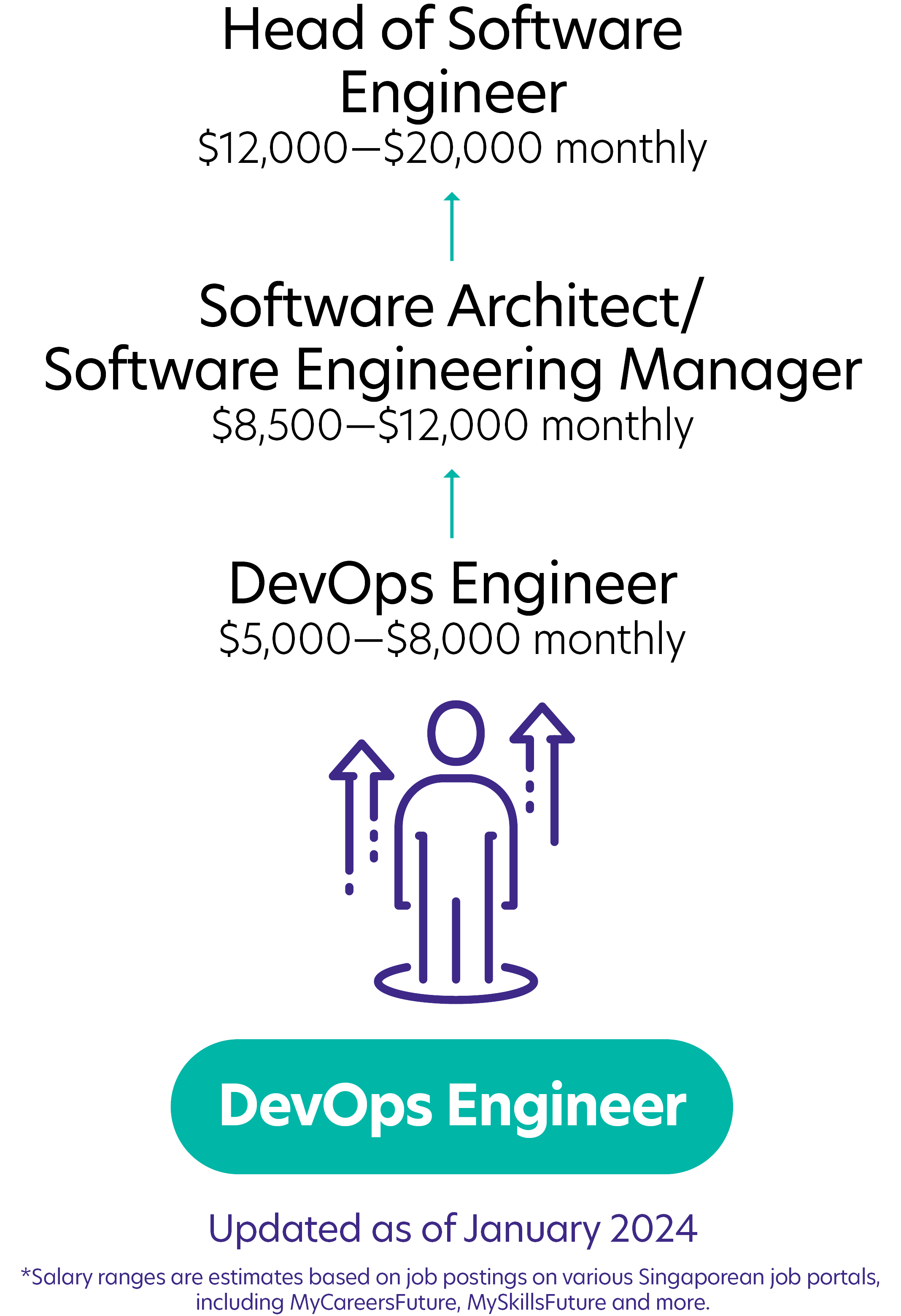
DevOps Engineers collaborate with the development and operations teams to help create reliable and rapid-release pipelines for software and updates, allowing for CI/CD (Continuous Integration and Continuous Deployment).
DevOps Engineer Job Description
- Design and enhance IT infrastructure.
- Test and evaluate system performance.
- Assist in automation of key repetitive tasks to improve productivity.
- Optimise software release cycles.
- Monitor and report errors by providing feedback after deployment is done.
- Maintain and deploy web-based applications.
- Find new opportunities for automation.
Note
The term “DevOps” is a combination of two words: Development and Operations. Specifically, it refers to "Software Development" and "IT Operations". DevOps aims to simplify and speed up the process of deploying software and making relevant changes while maintaining quality.
What you should know about DevOps Engineer jobs in Singapore
Nature of Work
The work of DevOps Engineers is hard and technically demanding. You’ll have to understand and work with various tools and technologies.Key advice
As DevOps Engineers, be prepared to be on-call to address urgent issues or deploy updates during off-peak hours to minimise user impact.-
Entry RequirementsEntry Requirements
- Minimally, a bachelor’s degree in Computer Science, Engineering, or related fields involving programming or equivalent practical experience is required for the job.
- It is also recommended to learn cloud computing technologies such as Amazon AWS, Microsoft Azure, or Google Cloud Computing as a foundation before learning DevOps. These are the infrastructures used to house applications, systems, or products.
- Having experience with Big Data technologies and high-performance trading systems is a bonus that can increase your chances of getting a job as a DevOps Engineer!
-
Possible PathwayPossible Pathway

Skills you need to pursue a DevOps Engineer career in Singapore
Knowledge of Linux or Unix Environment
Use Linux or Unix operating systems to manage servers and environments in DevOps.Experience with DevOps Tools
Use Git, GitHub, Jenkins, and other tools for development and deployment processes.Networking Skills
Understand network architectures and protocols for seamless connectivity and security.Understanding of the Agile Methodology
Collaborate effectively in fast-paced, iterative development environments.Adaptability
Readiness to adapt to changing technologies and methodologies in the fast-evolving field of DevOps.Communication
Clearly articulating technical concepts and collaborating effectively with cross-functional teams.Problem-Solving
Troubleshoot and resolve complex technical issues in development and operational environments.Attention to Detail
Carefully monitor processes and systems to prevent errors and improve efficiency.Related Job Roles
Explore Other Programmes
Browse AllYou have bookmarked your first item!
Find it in My Discoveries with insights on your interests!



